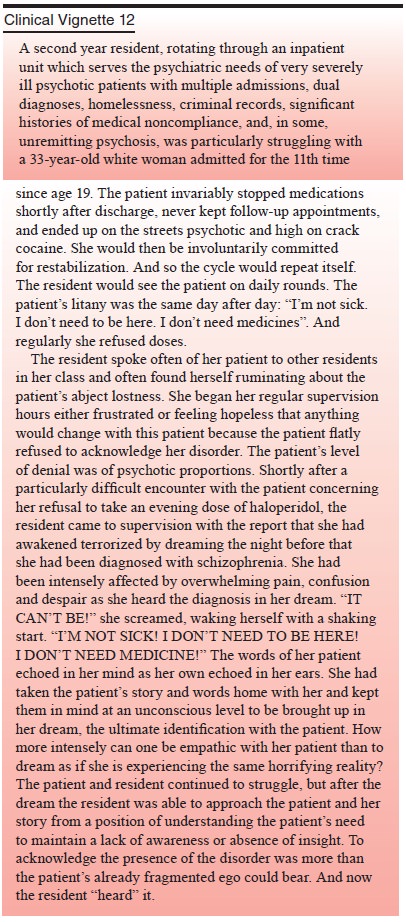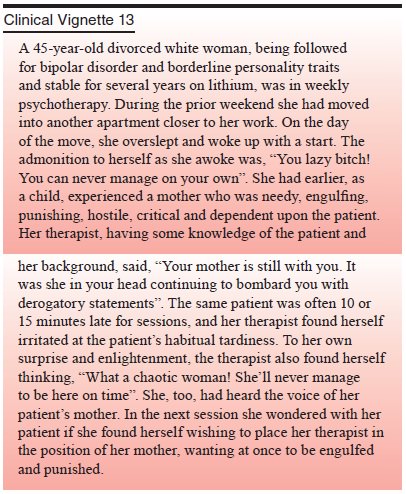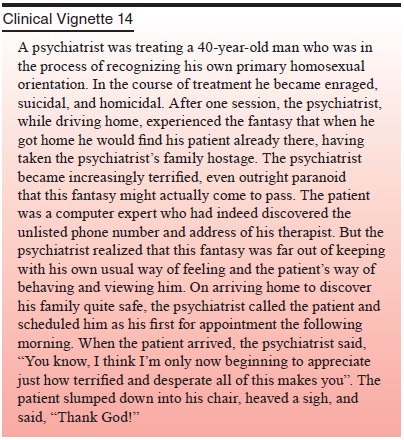Chapter: Essentials of Psychiatry: Listening to the Patient
Listening to Oneself to Listen Better
Listening to Oneself
to Listen Better
To hold in mind what has been said and heard after
a session and between sessions is the most powerful and active tool of
listen-ing. It is a crucial step often overlooked by students and those new at
listening. It is necessary to hear our patients in our thoughts during the
in-between times in order to pull together repetitive patterns of thinking,
behaving, and feeling, giving us the clos-est idea of how patients experience
themselves and their world. In addition, many of our traumatized patients have
not had the experience of being held inmind, of being remembered, and their
needs being thought of by significant others. These key experi-ences of
childhood affirm the young person’s psychological be-ing. It is important to
distinguish this kind of “re-listening” to the patient – an important part of
the psychiatrist’s ongoing process-ing and reprocessing of what has been heard
and experienced – from what some may leap to call countertransference. One way
of identifying this distinction would be to differentiate listening to oneself
as one reviews in one’s mind the patient’s story versus

becoming preoccupied and stuck with one’s thoughts
and feel-ings about a particular aspect of a patient.
As the verbal interaction with the patient occurs,
psychi-atrists may find themselves expressing thoughts and feeling in ways that
may be quite different from their usual repertoire. The following case is an
example.


This sort of listening to oneself in order to
understand the patient requires a good working knowledge of projective
iden-tification (Ogden, 1979). Projective identification, first defined by
Melanie Klein, describes a defense mechanism in which the patient, in an effort
to master intolerably terrifying emotions, unconsciously seeks to engender them
in the therapist and to identify with the psychiatrist’s ability to tolerate
and handle the feelings.
Related Topics